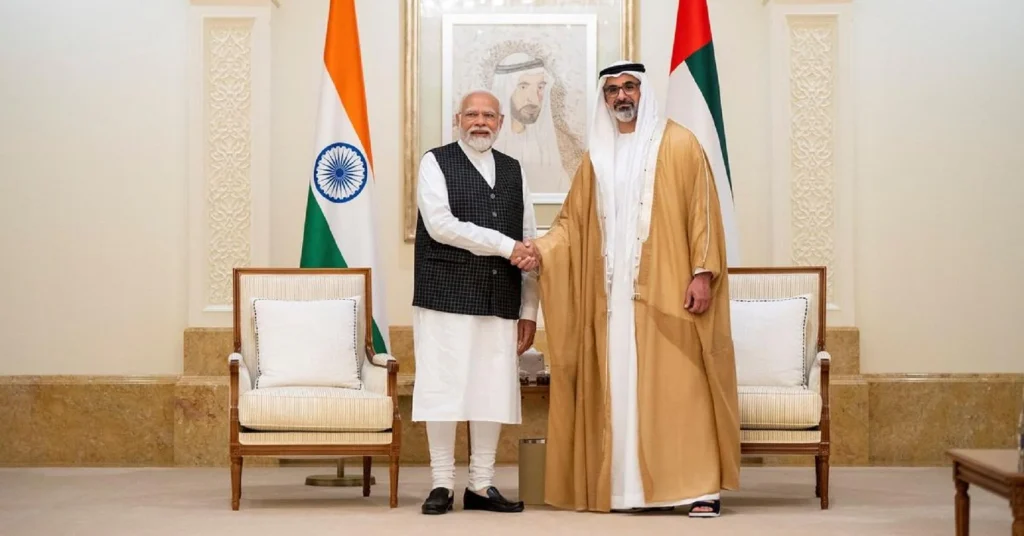Context:
Recently, India and the United Arab Emirates (UAE) signed a Memorandum of Understanding (MoU) for civil nuclear cooperation.
More on the news
- Along with the civil nuclear cooperation MoU, India and the UAE signed several other important agreements:
- Long-Term LNG Supply: An MoU was signed between Abu Dhabi National Oil Company (ADNOC) and Indian Oil Corporation Limited for a long-term supply of liquefied natural gas (LNG).
- Strategic Petroleum Reserve: ADNOC and India Strategic Petroleum Reserve Limited (ISPRL) reached an agreement concerning the strategic petroleum reserve.
- Production Concession Agreement: Urja Bharat and ADNOC agreed on a deal for Abu Dhabi Onshore Block 1.
- Food Parks Development: An MoU was signed between the Government of Gujarat and Abu Dhabi Developmental Holding Company PJSC (ADQ) to develop food parks in India. This initiative is part of the I2U2 grouping, which also includes Israel and the United States.
Global Agreements and Cooperation
Nuclear Suppliers Group (NSG) Agreement (2008): This agreement opened up opportunities for sourcing reactors and fuel from international suppliers.
Civil Nuclear Cooperation Agreements: India has signed agreements with various countries, including the USA, Russia, France, the UK, South Korea, the Czech Republic, Canada, Australia, Argentina, Kazakhstan, Mongolia, and Namibia.
UK Agreement (2015): Involving £3.2 billion ($4.9 billion) in programs and initiatives focused on energy security and climate change.
Japan Agreement (2016): This agreement allows India to import Japanese nuclear technology and secures Japan’s support for India’s membership in the NSG.
About Civil Nuclear Energy Agreement
- This agreement was made between India’s Nuclear Power Corporation of India Limited (NPCIL) and the UAE’s Barakah Nuclear Power Plant Operations and Maintenance, led by Emirates Nuclear Energy Company (ENEC).
- This MoU builds on a 2015 commitment during Indian Prime Minister’s visit to the UAE, where both nations agreed to work together on the peaceful use of nuclear energy, focusing on safety, health, agriculture, and technology.
- It underscores a broader effort to strengthen nuclear energy ties between the two countries.
- It also coincides with the UAE’s announcement of the completion of the Arab world’s first nuclear power plant, the Barakah Nuclear Energy Plant in Abu Dhabi. Once its fourth and final reactor starts commercial operations, the plant will produce 40 terawatt-hours of electricity annually.
India’s Nuclear Power Plants
- Presently, India has 22 operating reactors, with an installed capacity of 6780 MWe.
- Among these eighteen reactors are Pressurised Heavy Water Reactors (PHWRs) and four are Light Water Reactors (LWRs).
- Asia’s first nuclear reactor is the Apsara Research Reactor situated in Mumbai.
Significance of Agreement
- Enhance Cooperation: Improve the operation and maintenance of nuclear power plants.
- Source Nuclear Goods and Services: Facilitate the procurement of nuclear materials and services from India.
- Explore Investment Opportunities: Investigate mutual investment prospects in the nuclear sector.
- Capacity Building: Share knowledge and expertise in nuclear energy development.

